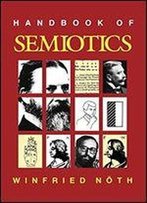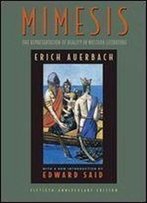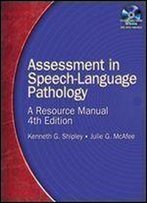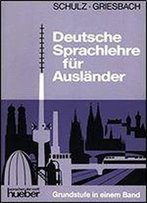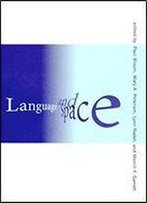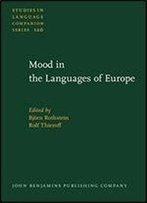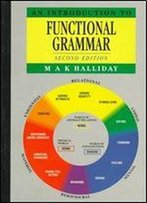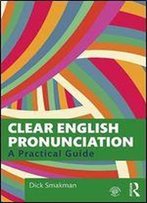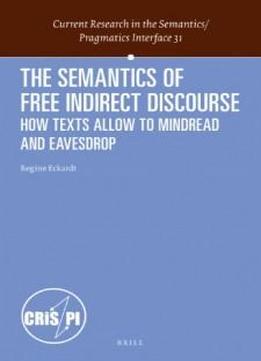
The Semantics Of Free Indirect Discourse: How Texts Allow Us To Mind-read And Eavesdrop (current Research In The Semantics / Pragmatics Interface)
by Regine Eckardt /
2014 / English / PDF
3 MB Download
Free indirect discourse presents us with the inner world of
protagonists of a story. We seem to see the world through their
eyes, and listen to their inner thoughts. The present study
analyses the logic of free indirect discourse and offers a
framework to represent multiple ways in which words betray the
speaker's feelings and attitude. The theory covers tense, aspect,
temporal indexicals, modal particles, exclamatives and other
expressive elements and their dependence on shifting utterance
contexts. It traces the subtle ways in which story texts can offer
information about protagonists.
Free indirect discourse presents us with the inner world of
protagonists of a story. We seem to see the world through their
eyes, and listen to their inner thoughts. The present study
analyses the logic of free indirect discourse and offers a
framework to represent multiple ways in which words betray the
speaker's feelings and attitude. The theory covers tense, aspect,
temporal indexicals, modal particles, exclamatives and other
expressive elements and their dependence on shifting utterance
contexts. It traces the subtle ways in which story texts can offer
information about protagonists.The study of free indirect
discourse has been a topic of great interest in recent years in
semantics and pragmatics. In this book, Regine Eckardt proposes a
new theory of this domain and applies it to a wide variety of
phenomena -- discourse particles, exclamatives, and mood -- in
addition to the traditional indexical pronouns and tenses. She
situates this project within a larger attempt to extend the tools
of semantic analysis to fiction. Most formally oriented
semanticists have not paid serious attention to this domain, which
has resulted in a major gap in semantic theory; this book is thus a
pioneering effort and raises many intriguing points. The total
result is an empirically rich and exciting work which will be a
profitable read for researchers interested in semantics,
pragmatics, and formal approaches to literature.
The study of free indirect
discourse has been a topic of great interest in recent years in
semantics and pragmatics. In this book, Regine Eckardt proposes a
new theory of this domain and applies it to a wide variety of
phenomena -- discourse particles, exclamatives, and mood -- in
addition to the traditional indexical pronouns and tenses. She
situates this project within a larger attempt to extend the tools
of semantic analysis to fiction. Most formally oriented
semanticists have not paid serious attention to this domain, which
has resulted in a major gap in semantic theory; this book is thus a
pioneering effort and raises many intriguing points. The total
result is an empirically rich and exciting work which will be a
profitable read for researchers interested in semantics,
pragmatics, and formal approaches to literature. Eric McCready,
Aoyama Gakuin University
Eric McCready,
Aoyama Gakuin University
